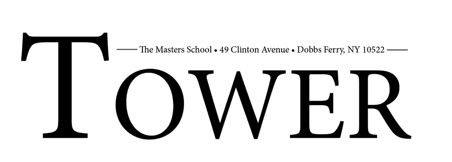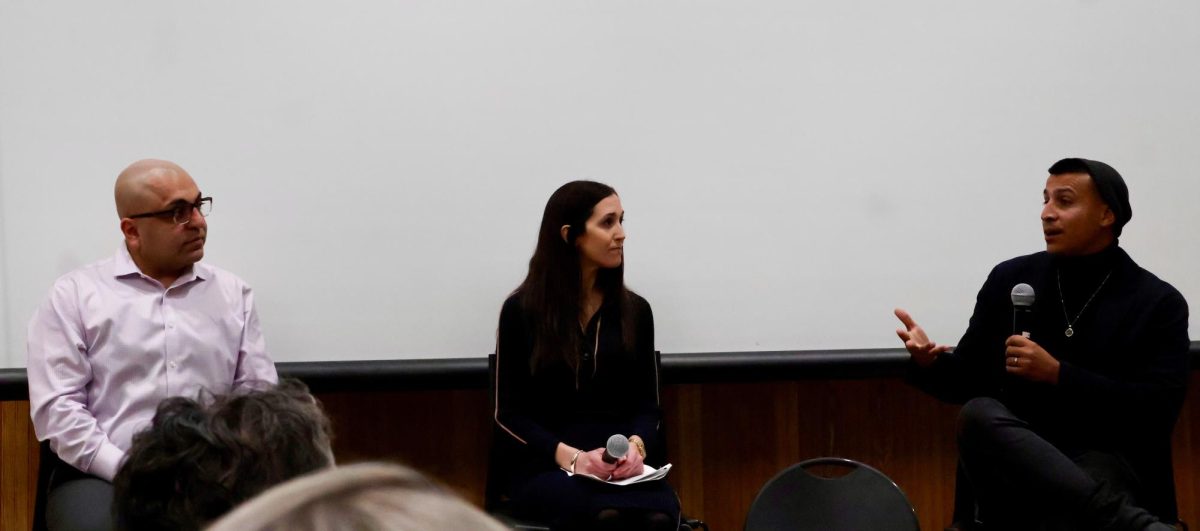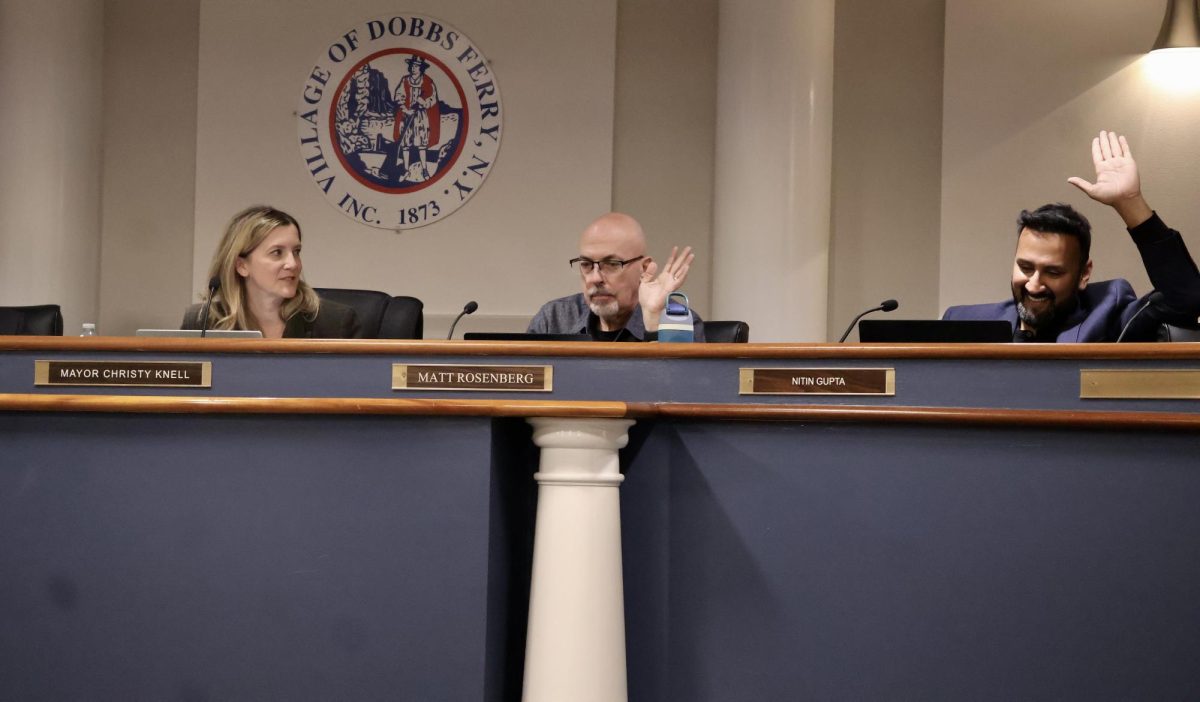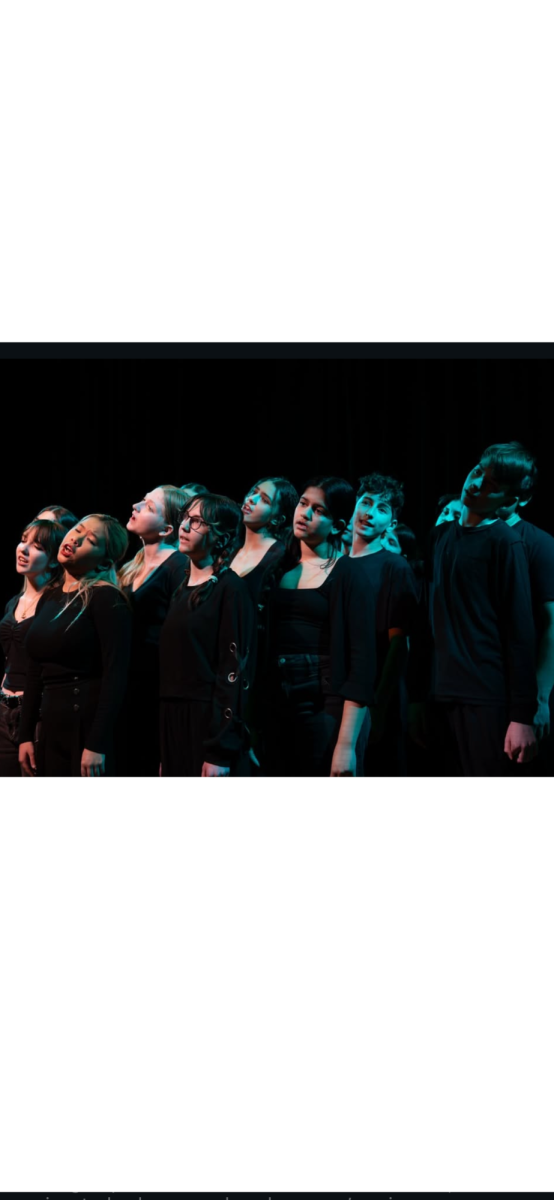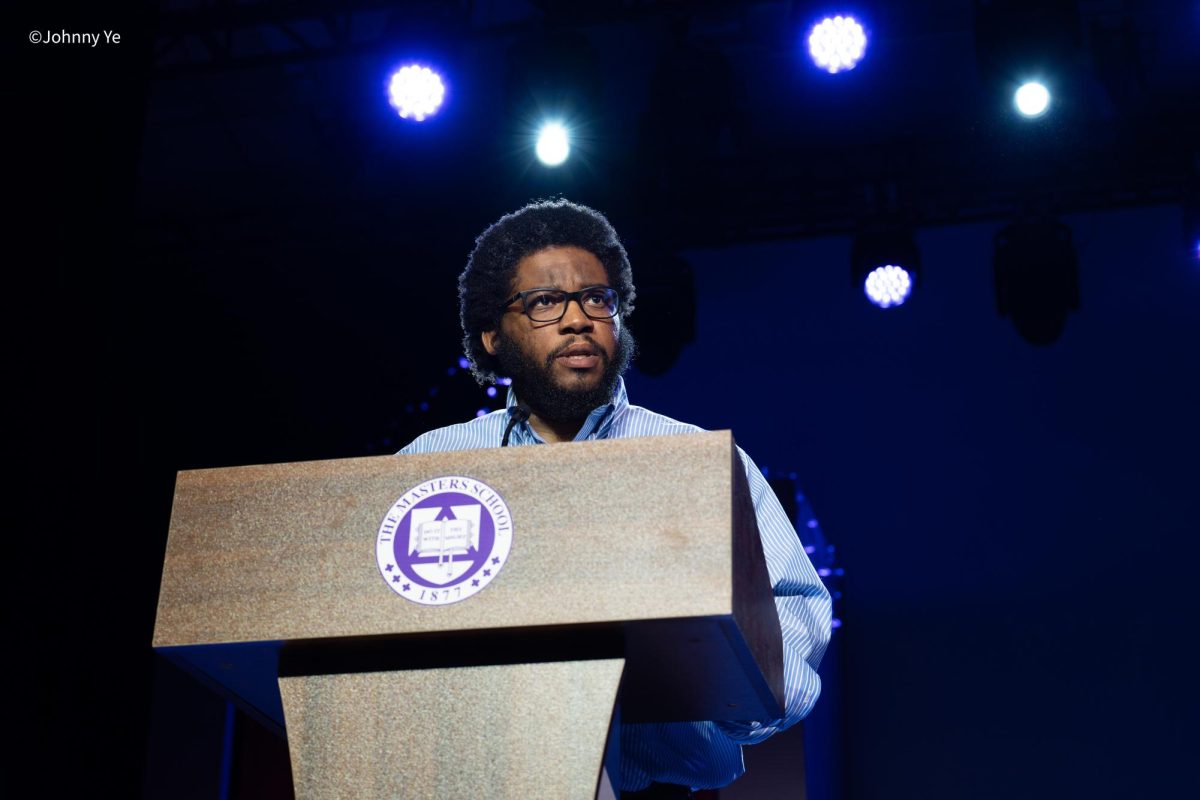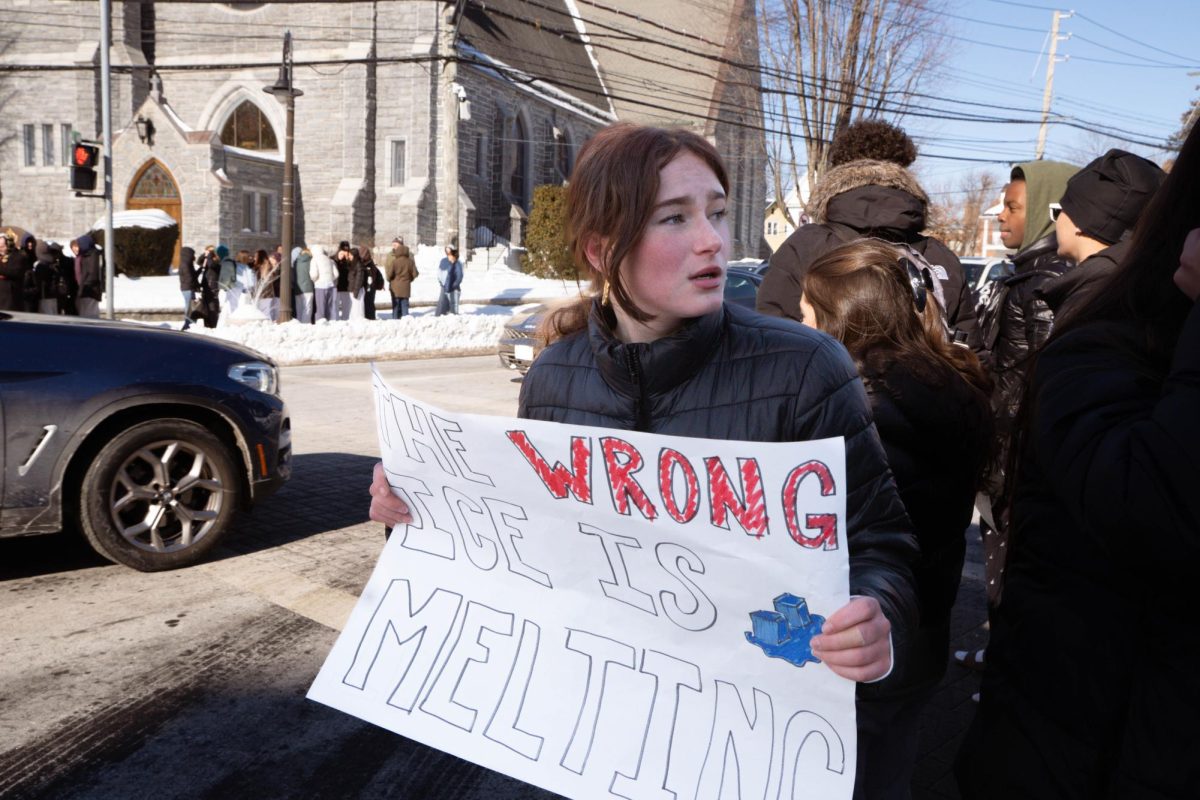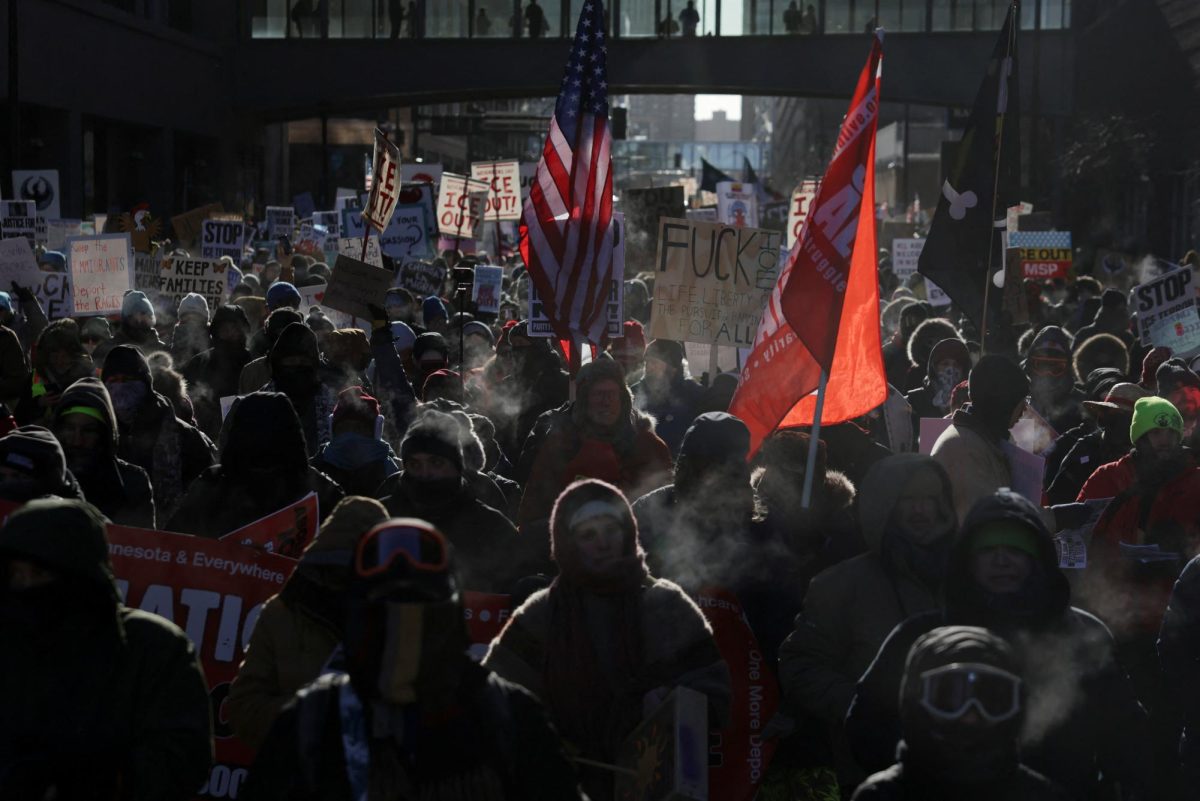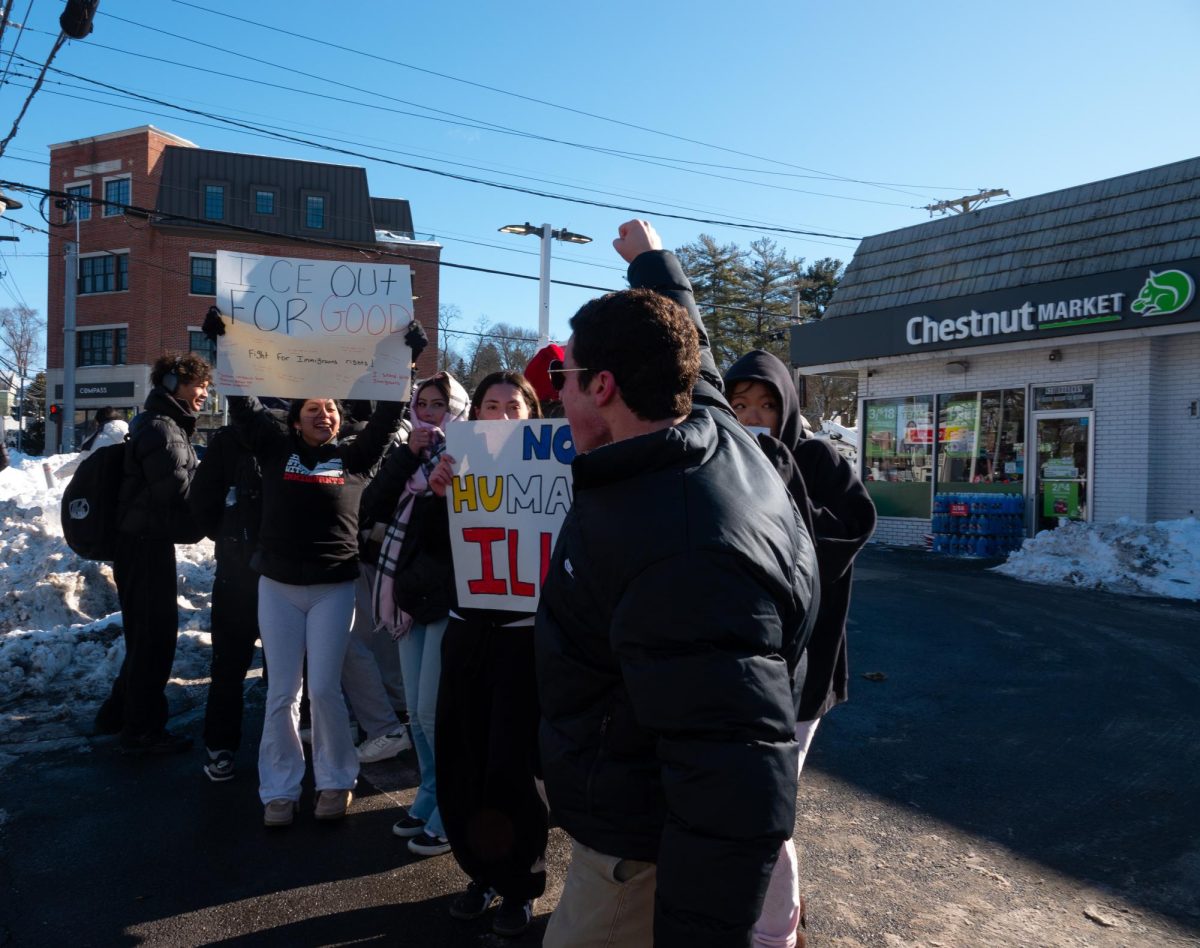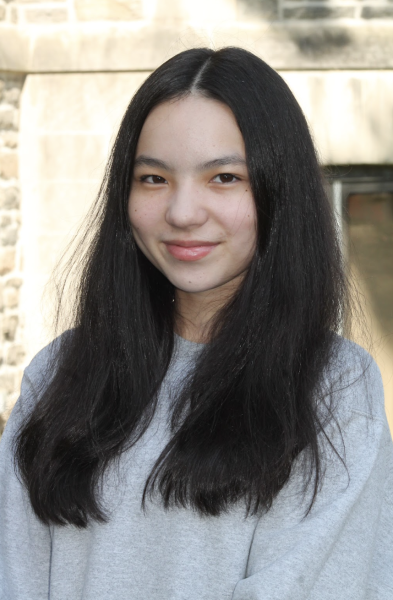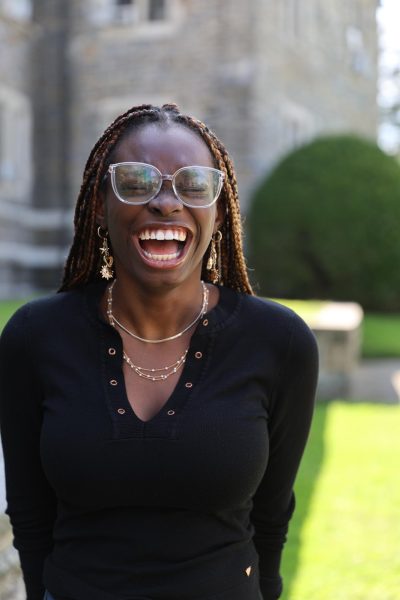Frustrated by the way extreme voices dominate online discourse and drown out nuanced perspectives, Israeli-American educator Yirmiyahu Danzig and Palestinian-American writer and analyst Ahmed Fouad Alkhatib led a discussion at The Masters School on Jan. 22, 2025, about the history and current realities of the Israeli-Palestinian conflict. Organized in partnership with ConnectED, the event explored their communities’ narratives, points of agreement and disagreement, and potential pathways toward peace.
Masters is part of a cohort of 19 schools working with ConnectED, an educational platform that partners with academic institutions to foster critical thinking, empathy, and respectful discourse on the Israel-Palestine conflict, antisemitism, and Jewish history. Selas Douglas, associate head of school for Inclusive Excellence at Masters, said that while Masters had previously hosted individuals affected by the conflict, this discussion was significant because it featured speakers with direct ties—one born in Gaza, the other living in Israel—who had both lost family members to the violence. He said, “It felt really important for us to be able to bring folks that are committed to that conversation to campus, not only to model that dialogue, but to help us think about how we relate to one another in our own community.”
Alkhatib shared his background growing up in Gaza, and how his exposure to Israelis and Jews outside the context of the conflict has shaped his understanding. He highlighted the internal divisions within Palestinian society, particularly between Gaza natives and refugees, and the need to separate the struggle for self-determination from extremist ideologies, criticizing Hamas for manipulating narratives to justify violence. Despite the immense personal loss he has endured, losing 30 family members in the conflict, Alkhatib remains committed to promoting dialogue and peace as a path forward.
Danzig, drawing from his experience as an Israeli and a former squad commander in Israel’s border police, discussed the widespread misunderstandings about Jewish identity and Israeli history. He criticized the way Jewish people are often portrayed in Western discourse, arguing that Israel is frequently misrepresented as a colonialist project rather than a homeland for a historically displaced and persecuted people. Danzig argued that while critique of Israeli policies is legitimate, it is often framed in ways that delegitimize Jewish identity and Israel’s right to exist.
The discussion also highlighted the role of social media in shaping public opinion and exacerbating polarization. Both speakers expressed frustration with the way extreme voices dominate online discourse, drowning out nuanced perspectives. Both Danzig and Alkhatib pointed to moderate voices being silenced by social pressures within their own communities, preventing them from publicly expressing moderate or critical views.
In their closing remarks, the speakers offered hope for a better future, emphasizing that change will come from people engaging with one another rather than relying on governments or political leaders. They encouraged students and educators to foster environments where open discussion is possible and to challenge the binary thinking that dominates much of the discourse on the conflict.
Student Perspectives
Senior Sophie Moussapour’s background and personal identity has influenced her engagement with the Israeli-Palestinian conflict and her pursuit of deeper understanding. “My mom is Jewish and my dad’s family is Muslim from Iran. And so it’s been a really interesting dynamic with the conflict that has lent itself to my trying to research the history of Israel and Palestine and how the history has escalated and what led to October seventh.”
She continued, “I saw this event as a wonderful opportunity to see and to take inspiration from their discourse, and it’s something my parents are similarly interested in, so I thought it would be really interesting to go with the both of them.”
Senior Aaron Weinberg also attended the event with his parents, and said that in conversation afterward the family discussed how the Israeli-Palestinian conflict has become a contentious issue on college campuses and the role parents play in helping their children navigate these discussions. Weinberg said, “One of the big things was, it’s not about force-feeding your child information, but giving them a full lens of the situation and letting them form their own opinions.”
He continued, “I think it [the event] was such a great experience. I would’ve hoped that more people would’ve gone. I wish I could have had those discussions with peers and input from other people. I really think that the whole Masters community would have valued that talk.”
Co-president of the Jewish Culture Club and senior Taylor Marlowe emphasized the humanity of the event and how both speakers highlighted complexities and suffering on each side of the conflict. Marlowe connected this idea directly to Masters’ educational philosophy, saying, “I think it’s really great that Masters is doing this. As a school, our whole thing is Harkness, you learn from each other, you have conversations and having these conversations is how you get further. And I think beyond it, going along with our mission to bring in these speakers, I think it’s amazing that I’m able to do stuff like this and hear these types of people through my high school.”



